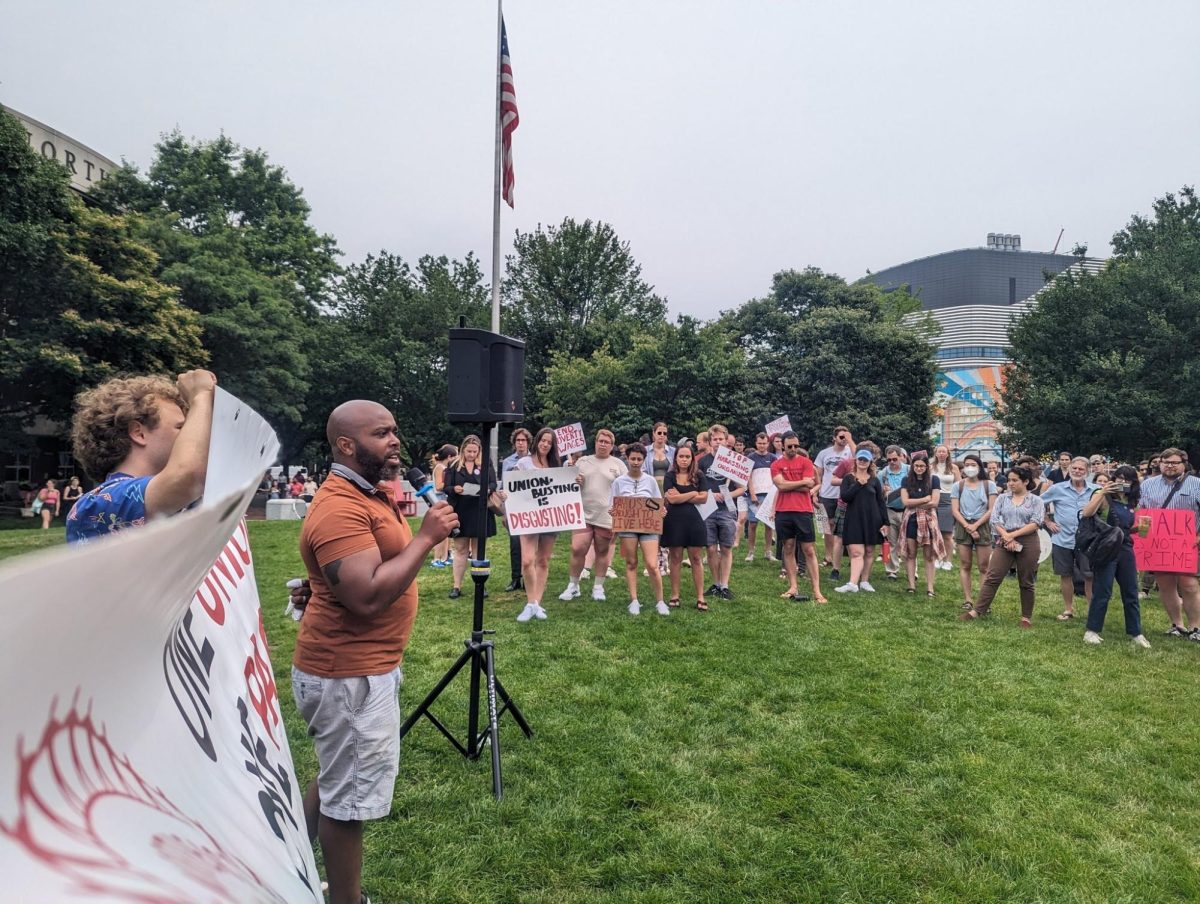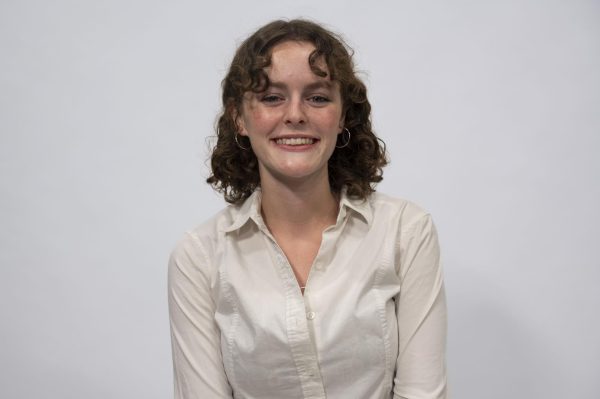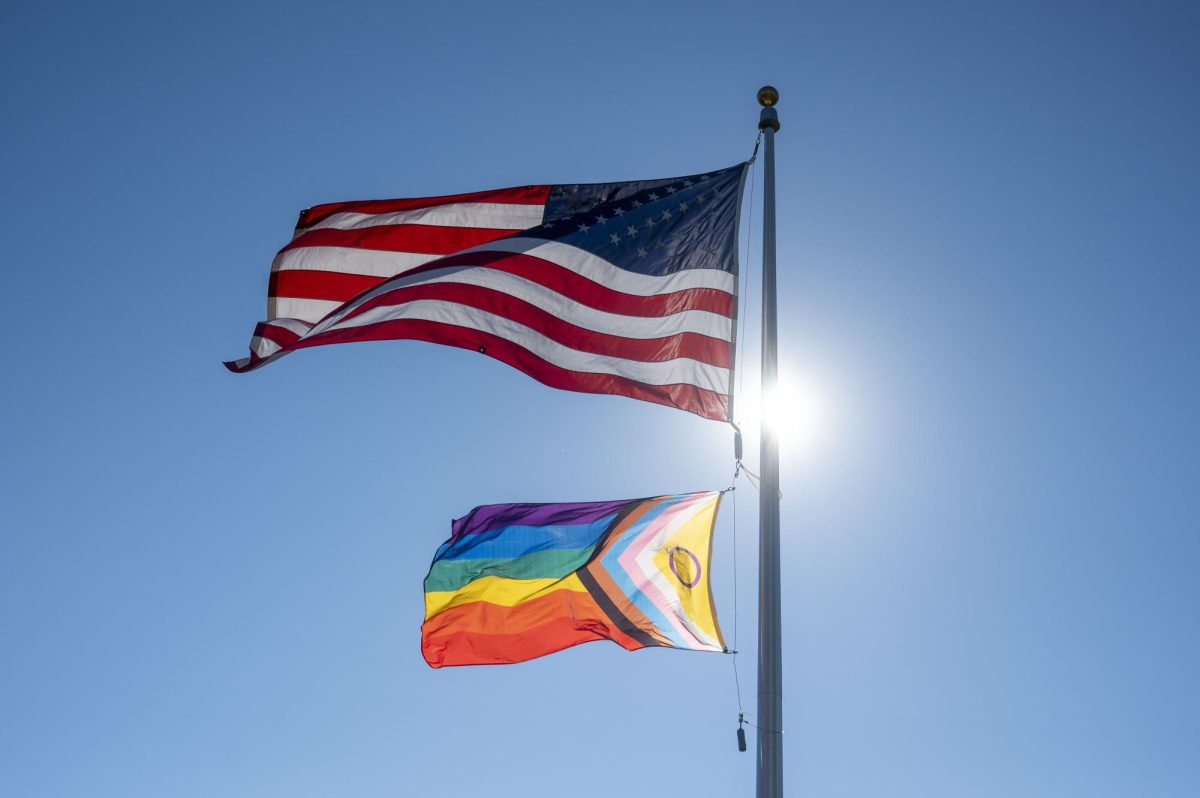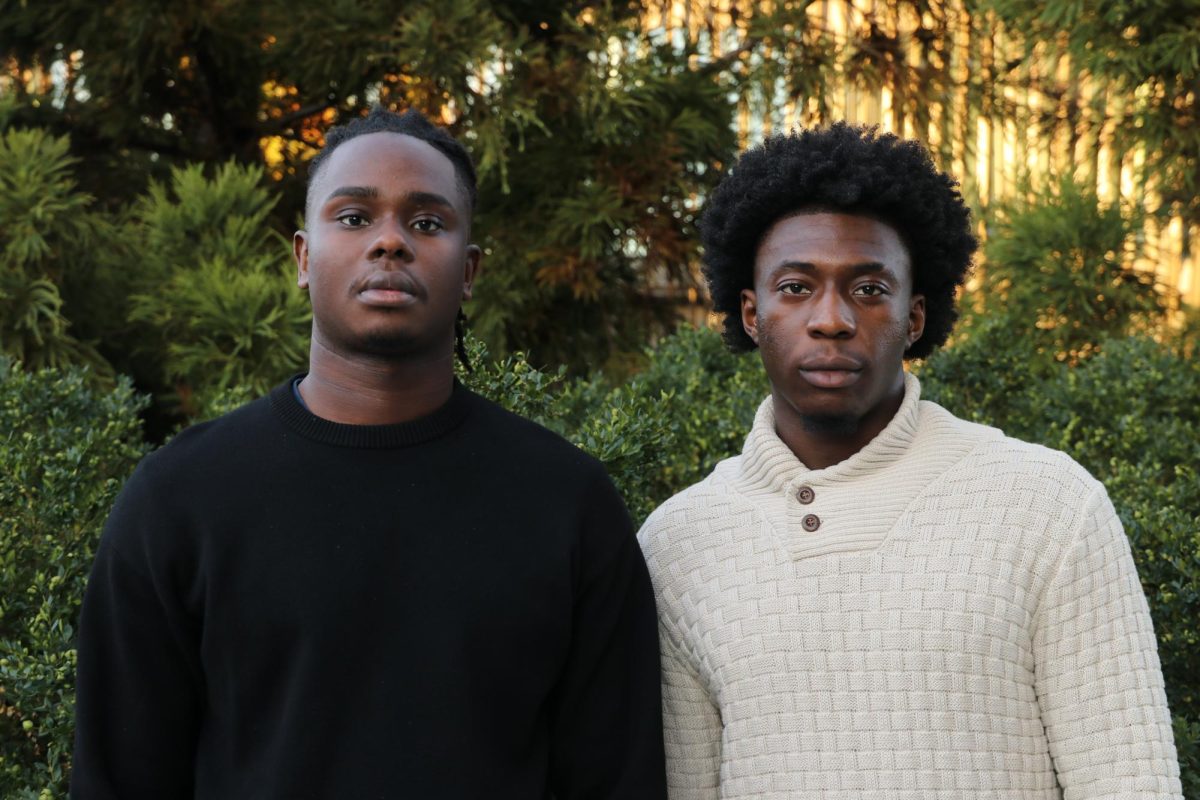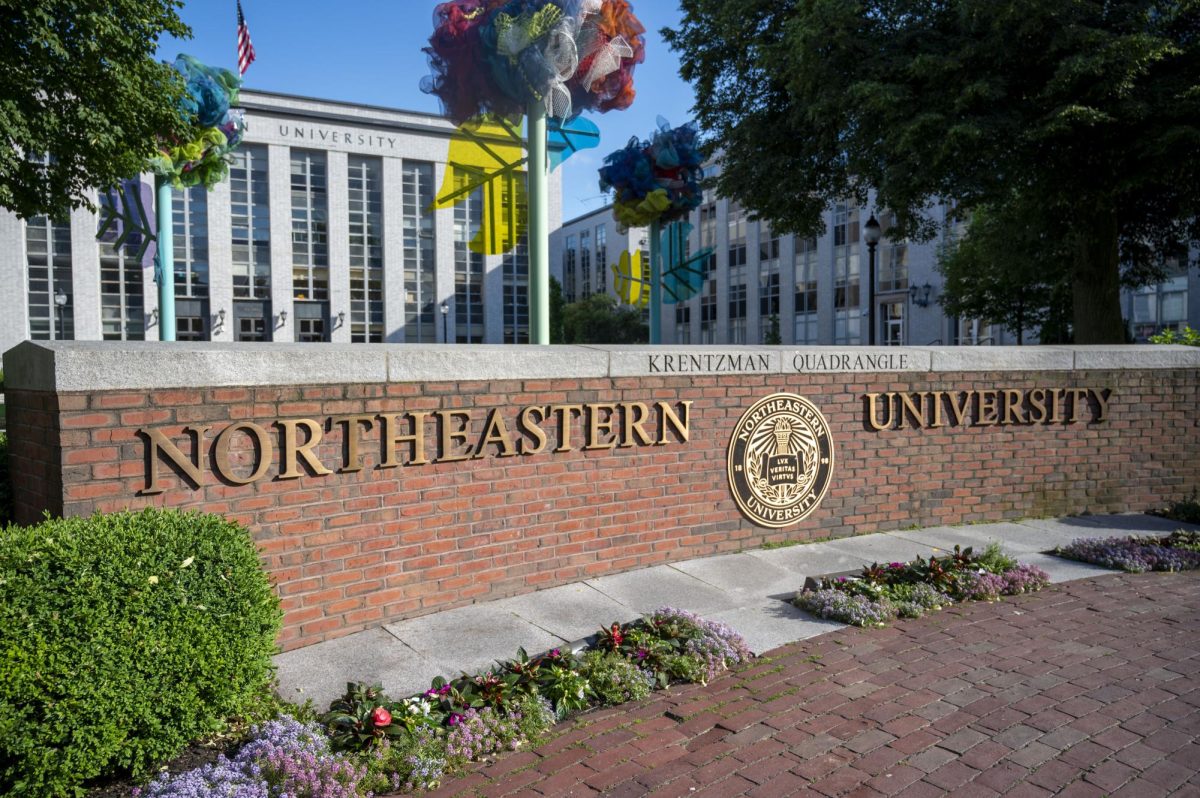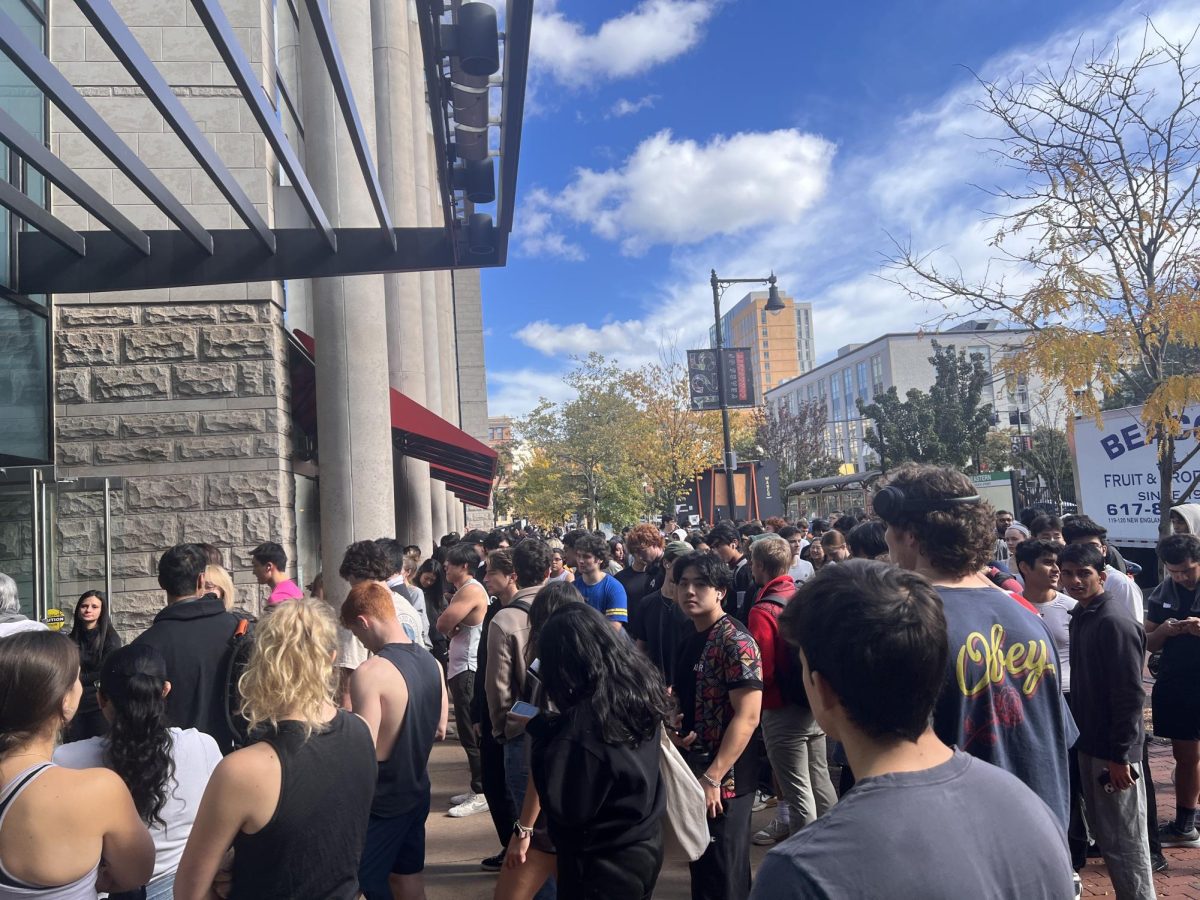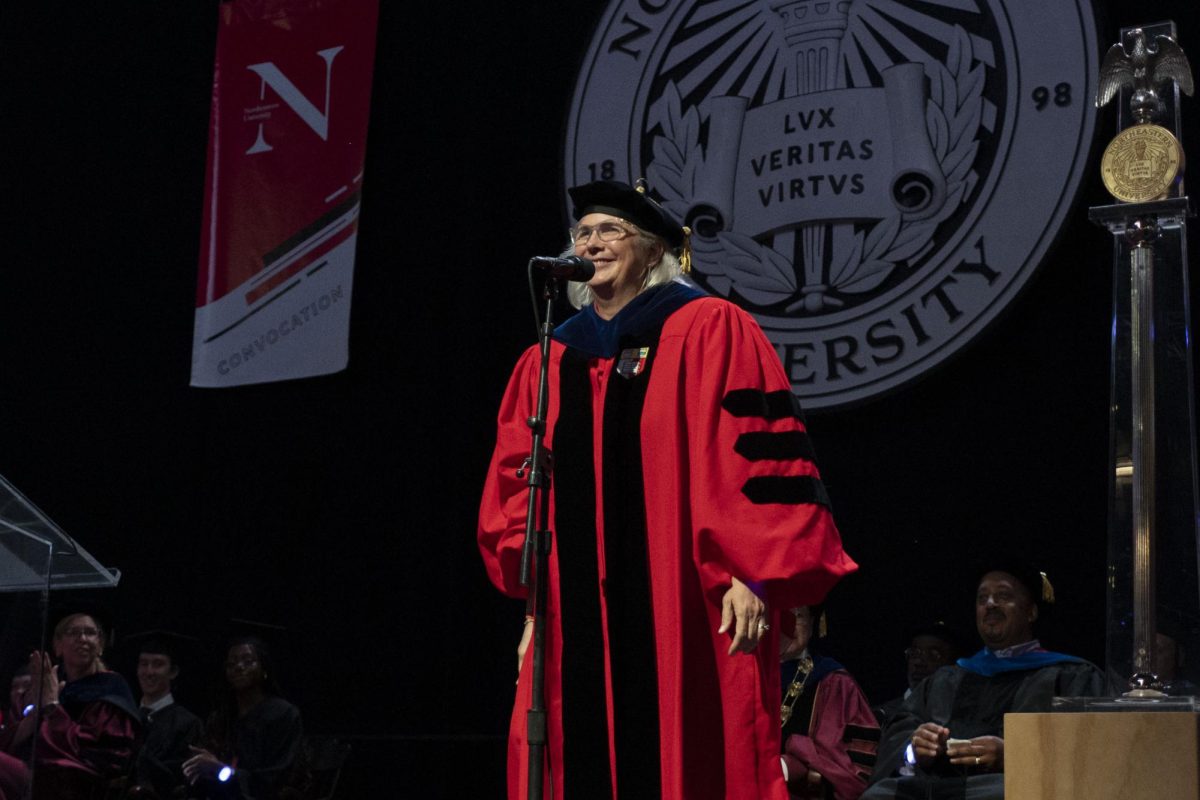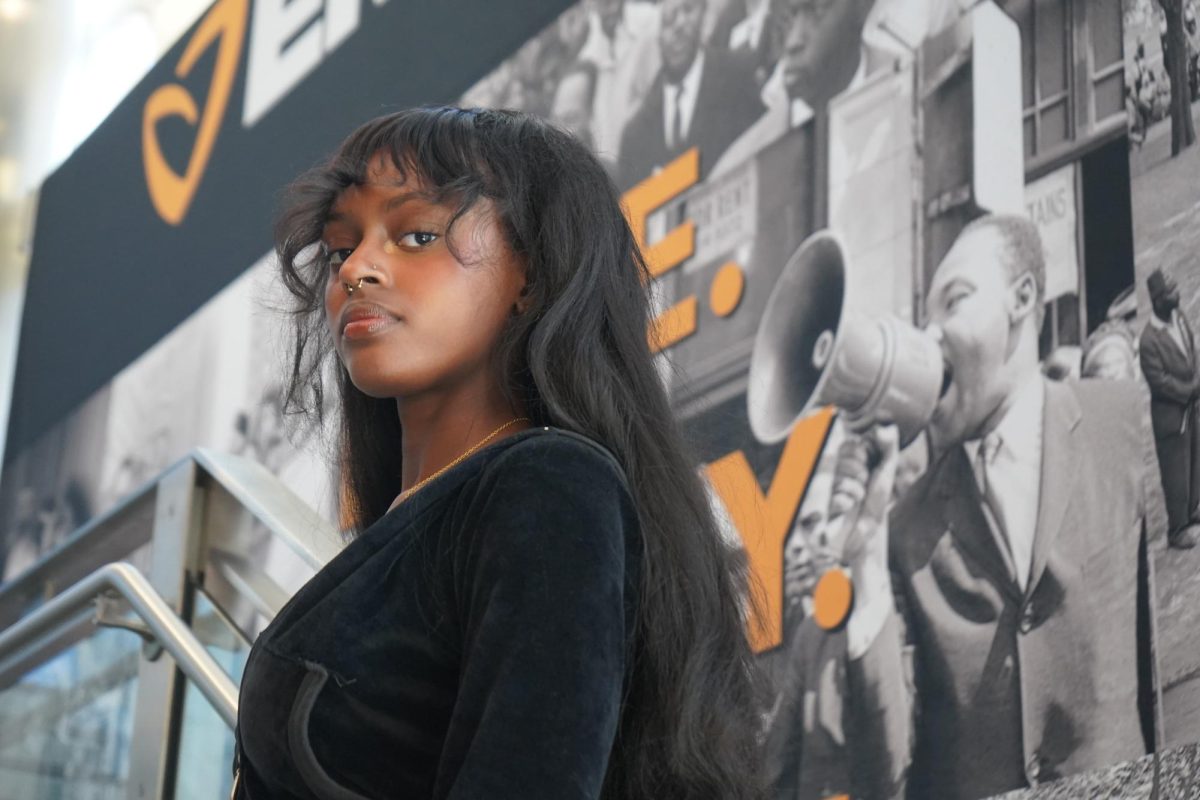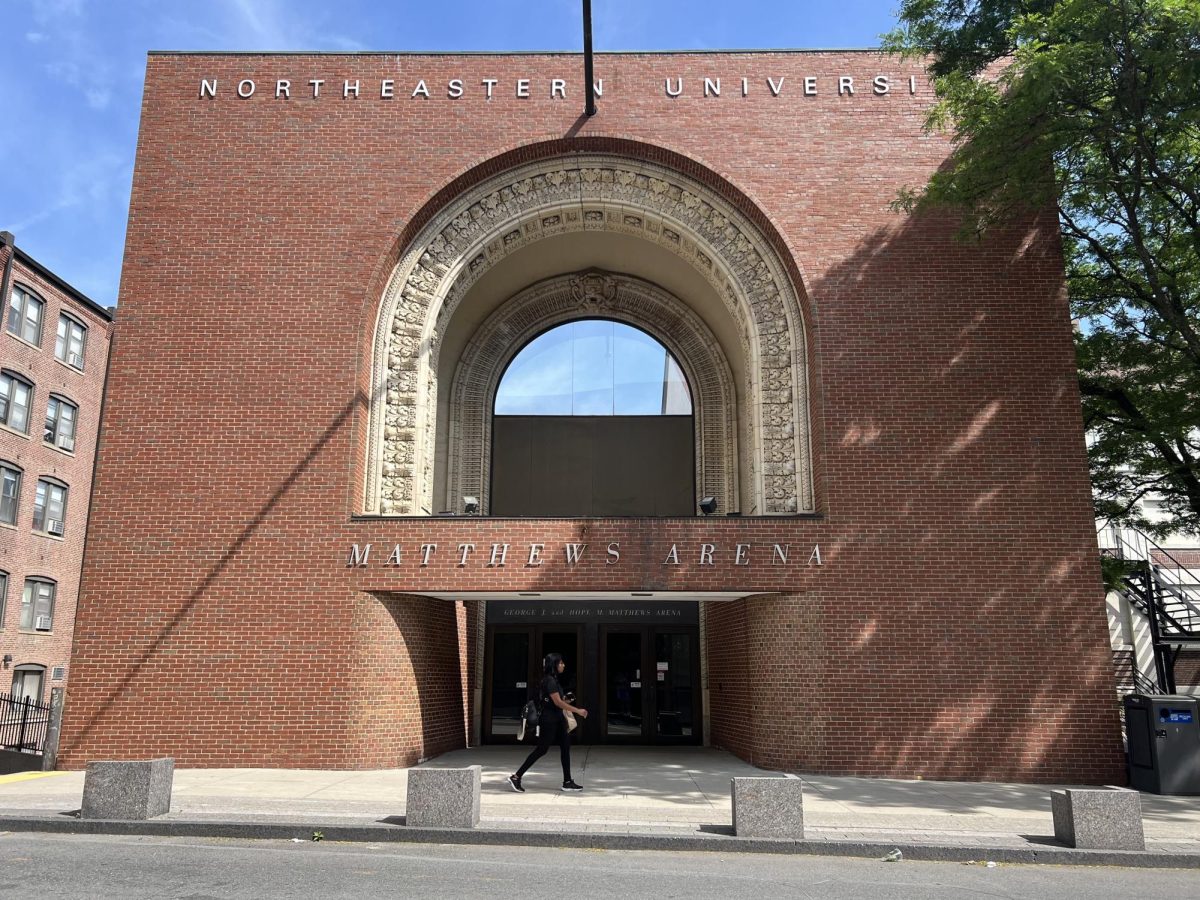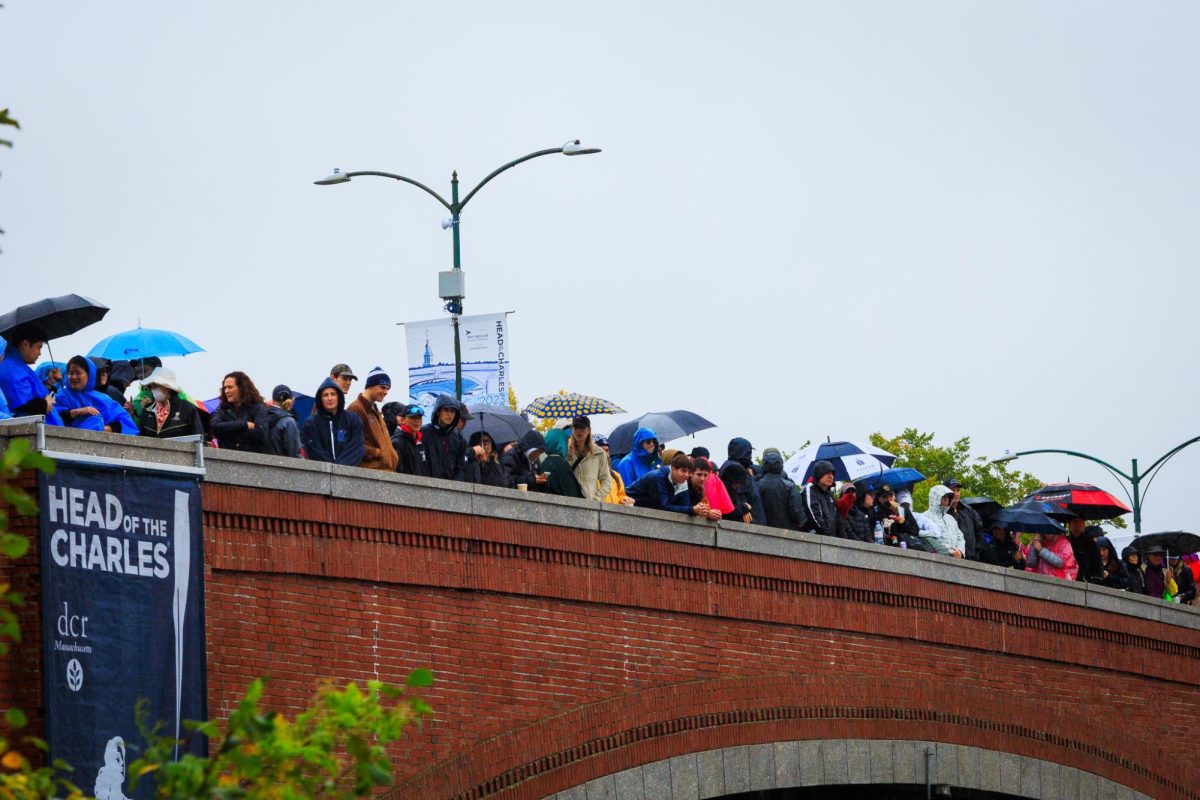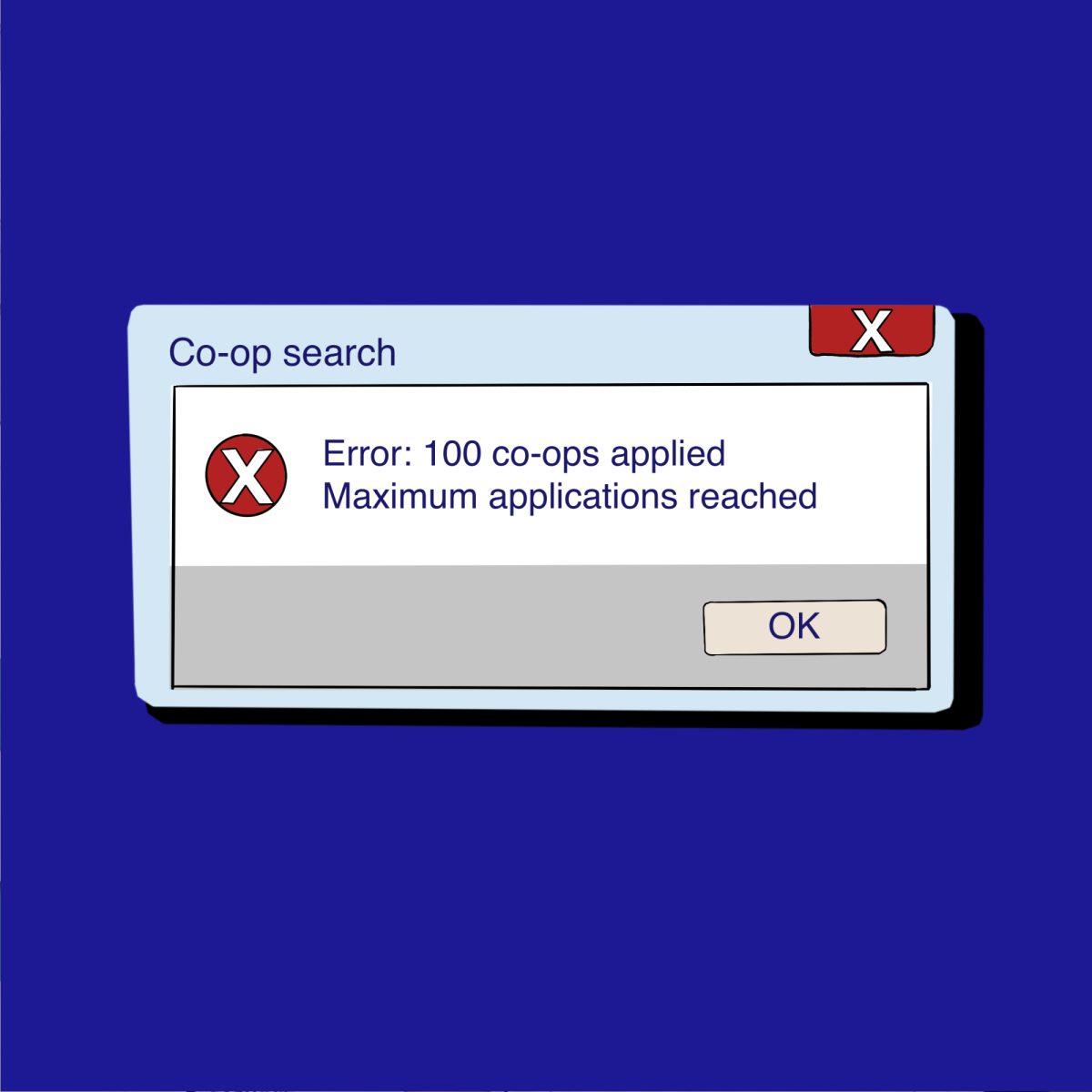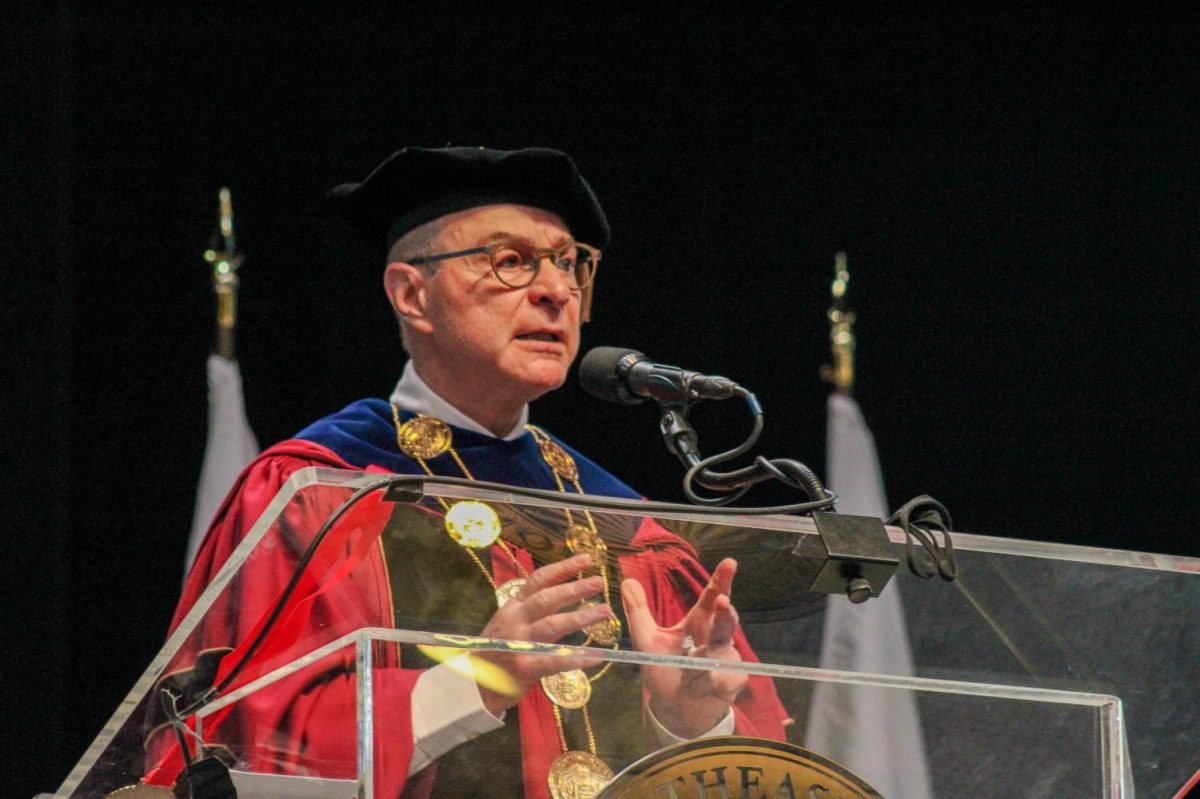After an multi-year effort to unionize while facing sustained university opposition, Northeastern graduate student workers received authorization from the National Labor Relations Board July 14 to hold a vote in September deciding whether a union should represent graduate workers in bargaining talks with the university.
In a consequential victory for the Graduate Students of Northeastern University, or GENU-UAW, the National Labor Relations Board, or NLRB, has allowed workers to hold a vote determining whether they want to be collectively represented by the United Automobile Workers union, the union announced on Twitter in July.
“IT’S ABOUT DAMN TIME!” the tweet from @nugradunion read. “After an 8 year battle with admin obstruction, Northeastern grad workers are finally having our union election.”
Calls for a union vote began in the summer of 2016, but the Northeastern administration’s refusal to voluntarily recognize the union or support a union election stymied graduate organizers for years.
By the 2017-18 academic year, the union had a majority of student workers sign cards of support needed to file a petition for a union election, according to an organizer with the union. But graduate unions across the nation held off on filing under the Trump-appointed, anti-labor rights NLRB, fearing a case would give the board the opportunity to overturn precedent set in a 2016 decision at Columbia University classifying graduate workers as employees.
After his January 2021 inauguration, President Joe Biden began nominating Democratic members to seats on the NLRB, and, by August, Democrats had achieved a majority on the board. With revived confidence in a pro-union board, organizers then renewed efforts to get a majority of graduate students to sign union cards.
Momentum picked back up during the 2022-23 academic year amid a surge in graduate worker unionizations nationwide as organizers with GENU-UAW partnered with undergraduate campus organizations to decry university attempts to stifle graduate workers’ advocacy. The union also earned the attention of Boston’s city council, which unanimously passed a resolution in May condemning the university’s alleged anti-union practices.
“Northeastern has been trying to stop us at every single turn,” said Hunter Moscowitz, a fourth-year PhD student studying history and an organizer with the union.
Moscowitz said Northeastern hired a private firm that repeatedly appealed decisions from the NLRB ruling in favor of the union, but ultimately the board “decided everything that we wanted in our favor. They rejected all the university’s arguments.”
According to legal documents Northeastern filed with the NLRB challenging grad students, the university argued graduate workers should not be classified as employees and given the labor protections accompanying that status. “They are not ‘directed’ in the same way that an employer directs or controls an employee’s work,” the document reads. “They are not students and employees. They are students.”
The argument was not compelling to the NLRB, which ruled that graduate workers are entitled to unionize as employees of the university under precedent set by the 2016 decision at Columbia University.
Decision and Direction of Election-Northeastern University (7)
“[Unionization] gives workers a voice in the decisions that are made about their work lives. … The employer doesn’t have complete control over the worker in a unionized environment,” said Seth Harris, a senior fellow at Northeastern’s Burns Center for Social Change, which publishes the “Power at Work” blog covering collective worker power.
Graduate student workers at Northeastern’s Nahant and Burlington campuses are eligible to vote in the election deciding whether GENU-UAW can be represented by a union, but must travel to Northeastern’s Boston campus to cast a confidential ballot. Undergraduate students are not eligible to vote.
If the union is certified after the election, the university and the union must work towards a collective bargaining agreement to negotiate a contract in good faith.
But both parties “can disagree, and they vigorously do disagree. In fact, some unions win elections and never get a first contract,” said Harris, who previously served as deputy assistant to the president for labor and the economy and as deputy director of the Biden administration’s National Economic Council.
Priorities for graduate workers include improving working conditions and pay, which Moscowitz and other graduate workers told The News is not a sustainable level of income for workers living in Boston.
“I’m tired of seeing people having to move every single year because they can’t afford rent because our stipends don’t go up with the cost of living, and it’s crazy in Boston,” Moscowitz said. “I’m tired of seeing people not being able to afford basic things like dental care, take care of their teeth. … This is about improving people’s everyday lives and making their [lives] better and their situation[s] more livable in Boston.”
In response to the announcement of the election, David Madigan, provost and senior vice president for academic affairs, sent eligible graduate students an email detailing the significance of the decision. A webpage linked in the email enumerates possible negative outcomes of voting in favor of a union, including “You lose your individual voice in your graduate experience,” “Limited flexibility” and “There are no guarantees in collective bargaining.” A “Points of View” section of the website links 26 articles highlighting the negative outcomes of unionization.
“It is reasonable to ask what the value in pursuing a union is if many SGAs (student graduate assistants), including some of the union organizers, will no longer be graduate students at Northeastern by the time an agreement is reached,” the provost’s website reads.
According to Moscowitz, graduate students are disappointed with the university’s behavior throughout their unionization effort and their refusal to acknowledge student workers as employees.
“We teach classes, we do all the research, we do grant writing, we operate programs. There are even graduate students who serve on hiring committees. Every single part of the university functions because graduate students are doing the work,” Moscowitz said. “And we’ve seen time and time again that they will take the most extreme measure they can to fight graduate students instead of recognizing that there are issues that they can help us fix.”
The election is set to take place at a yet-to-be-determined location on the Boston campus Sept. 19, 20 and 21. Voting will take place between 10:00 a.m. and 12:00 p.m., as well as between 2:00 p.m. and 6:00 p.m.
Although the election is a triumph for union advocates, a long road lies ahead for graduate workers, who will engage in collective bargaining with the university if workers vote in favor of the union. It can sometimes take months or years to reach a contract agreement, according to Harris.
“Winning the election is a necessary first step and an important first step, but it’s not the end,” Harris said. “There then is going to be bargaining, and bargaining can be very difficult. Very, very, very difficult.”



